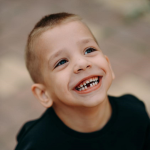How to Help an Autistic Child Adjust to a Change in Routine
Helping an autistic child adjust to a change in routine can be challenging, as many autistic children thrive on predictability and structure. Here are some strategies to ease the transition and help them manage changes in routine:
- Prepare in Advance
- Provide a heads-up: Inform the child in advance about the upcoming change, especially if it’s something they are not expecting. Give them enough time to process the information.
- Visual schedules: Use visual schedules or calendars to show the child the change, so they can see what’s coming up.
- Social stories: Create a social story that explains the change in routine and helps the child understand the reason for it, using simple and clear language.
- Offer Predictability in New Situations
- Create new routines: If the change involves a new activity or schedule, establish a new routine around it. Consistency in the new routine can help the child feel secure.
- Use familiar items: Bring along familiar items or routines that the child associates with comfort, such as a favorite toy or blanket, to the new activity.
- Gradual Transitions
- Small steps: If possible, introduce the change gradually. For example, you can break the new routine into smaller steps and introduce one change at a time, rather than all at once.
- Practice ahead of time: If the change involves a new environment, such as a new school or class, practice visiting the location beforehand to familiarize the child with the space.
- Use Clear and Simple Communication
- Be clear and direct: Use straightforward language to explain what will happen. Avoid abstract concepts and focus on what is concrete.
- Visual cues: Pair verbal explanations with visual aids, like pictures or written instructions, to reinforce the information.
- Provide Emotional Support
- Acknowledge feelings: Recognize and validate the child’s feelings about the change. It’s okay for them to feel upset or anxious, and letting them know you understand can provide reassurance.
- Offer comfort: If the child becomes anxious, provide comfort through calming techniques like deep breathing, a calming space, or physical comfort (like holding hands).
- Reinforce Positive Behavior
- Praise flexibility: Reinforce any effort the child makes to adjust to the change, even if it’s small. Positive reinforcement can help build resilience to future changes.
- Use rewards: Consider using a reward system to motivate the child to follow the new routine, offering small incentives for adapting to the change.
- Maintain Consistency in Other Areas
- Keep other routines stable: Try to keep other aspects of the child’s routine consistent, such as mealtimes, bedtime, and preferred activities, to provide stability while they adjust to the change.
- Be Patient and Flexible
- Allow time to adjust: Recognize that it may take some time for the child to fully adapt to the change. Be patient and understanding as they navigate the transition.
- Stay flexible: Be prepared to offer extra support or make accommodations as needed during the adjustment period.
By providing advance notice, using visual aids, offering emotional support, and reinforcing positive steps, you can help an autistic child adjust to a change in routine with greater ease and confidence.
Autism Treatment Center Videos
Autism treatment with own stem cells
Cord blood association congress
International Quality Crown
Autism Treatment Reviews
Autism treatment with own stem cells
The story of Alessandro (6 years old)
Autism Patient Testimonial - Stem Cell Treatment
Clients Testimonials
In May 2023, my son underwent a stem cell transplant using his own cells to correct autism at the Mardaleishvili Clinic in Georgia. At that time, David was 11 years old. After the transplant, there have undoubtedly been improvements in David’s condition. David began to almost fully understand spoken language. He started to adequately perceive and react to the world around him. He became more attentive and now recognizes danger. David became more social, often approaching other children and trying...

Feedback from Igor, David’s father (12 years old) Read More
Hello, I would like to share my experience regarding the transplantation of own stem cells for the treatment of childhood autism. My son Fedya underwent the procedure in Georgia at the Mardaleishvili Clinic. As a mother, I really want quick and maximum results, but so far we are making slow progress. After the procedure, the child experienced an emotional outburst. Two weeks later, we noticed that he improved by 50% in understanding spoken language. He began to follow more complex...
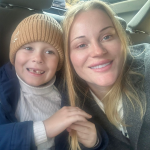
Feedback from Olga, Fedya’s mother Read More
Our son Radomir is 15 years old. We are from Kyrgyzstan. In June 2023, Radomir underwent an autologous stem cell transplant for autism correction at the Mardaleishvili Clinic in Tbilisi. A year later, Radomir has shown noticeable progress. He has lost his aggression and tantrums, and his concentration and memory have improved. At school, teachers note that he has become more teachable and attentive. He finds mathematics easy. His writing has improved, and he no longer forgets letters. His vocabulary...
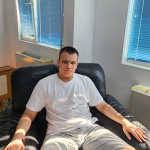
Feedback from Natalia, Radomir’s mother (15 years old) Read More
Our son Samuel is 8 years old. We live in the USA. In June 2023, he underwent a transplantation of his own stem cells from umbilical cord blood for autism correction at the Mardaleishvili Clinic in Georgia. We have seen a lot of positive results this year. Samuel's eye contact has improved. His vocabulary has increased; he has started speaking in sentences. He can voice his desires now. He started to communicate with his peers, he began to communicate better...
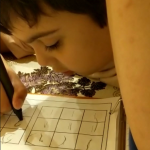
Feedback from Esther, Samuel’s mother (8 years old) Read More
Our son Selim is 7 years old and he has cerebral palsy. In 2022, in the Mardaleishvili Clinic in Georgia, Selim underwent the first stem cell transplantation from his own bone marrow. After the procedure, Selim’s swallowing reflex improved, salivation decreased accordingly, and he began to chew better. Also he began to focus his eyes better, to recognize his relatives, to respond better when we talk to him, and to express interest in the environment. Selim's spasticity has decreased and...
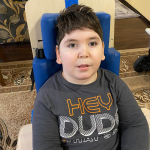
Feedback from Abibe, Selim’s mother (7 years old) Read More
Our son David is 6 years old. We are from Kazakhstan. In May 2023, David underwent a transplantation of his own stem cells at the clinic of Mardaleishvili in Georgia for the correction of the following diagnoses: right-sided hemiplegia and delayed mental and speech development. After the transplantation, the right leg has almost completely recovered and there is significant improvement in the right arm. New words have appeared; David can form phrases of two or three words. He started using...
